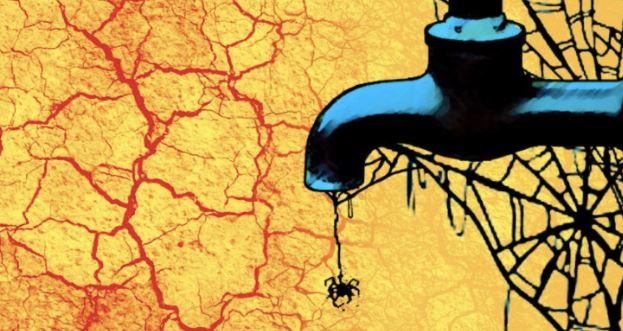India’s water security – Issues and the way forward

From Current Affairs Notes for UPSC » Editorials & In-depths » This topic
IAS EXPRESS Vs UPSC Prelims 2024: 85+ questions reflected
Context: According to the recent statement of a Delhi-based non-profit, the Centre for Science and Environment (CSE), Global warming and climate change have the potential to put water security in India at risk.

What does the intense heatwave that has hit large parts of India so early this summer really mean?
- India is witnessing a repeat of 2021 conditions when temperatures touched 40 degrees Celsius as early as February in some parts of the country.
- The intense heatwave that has hit large parts of India so early this summer really means that this is the age of climate change.
- It also means that how we deal with our water in the coming days will determine whether we would survive such extreme climatic conditions.
Why the climate change mitigation has to be about water and its management?
- The climate change impacts are about heat — increased and scorching temperatures — and about variable and extreme rain. Both have a direct correlation with the water cycle.
- Therefore, climate change mitigation has to be about water and its management.
Global warming and La Niña
- The Pacific water currents are known to bring cooler temperatures globally.
- But, in the year 2021, Indian weather scientists have informed global warming has offset this cooling effect of La Niña.
Implications of the rising heat for water security
Greater evaporation from waterbodies:
- It means that we need to work not just on storing water in millions of structures, but also plan for reducing losses due to evaporation.
- It is not that evaporation losses did not happen in the past, but the rate of evaporation will now increase with the soaring temperatures.
Drying up of moisture in soils:
- Increased heat can also lead to a drying up of moisture in soils. It will make the land dusty and will increase the need for irrigation.
- In a country like India, where the bulk of the food is still grown in rain-fed regions, it will intensify land degradation and dust bowl formations.
- This means water management must go hand-in-hand with vegetation planning to improve the ability of soils to hold water, even in times of intense and prolonged heat.
Drive-up the use of water:
- Heat will drive up the use of water — from drinking and irrigation to fighting fires in forests or buildings.
- Already, devastating forest fires have been witnessed in many parts of the world and in the forests of India. This will only increase as temperatures go up.
- The demand for water will increase with climate change, making it even more imperative that water, as well as wastewater, are not wasted.
Floods followed by droughts:
- Climate change is already showing up in terms of the increasing number of extreme rain events.
- This means that one can expect rain to come like a flood, making the cycle of floods followed by droughts even more intense.
- India already has fewer rainy days in a year. It is said that it rains for just 100 hours on average in a year. Now, the number of rainy days will further go down, but extreme rainy days will increase.
- This will have a huge impact on India’s plans for water management.
The way forward
Water management:
- The country needs to think more about flood management, not only to embank rivers but to optimize the floodwaters so that they can be stored in underground and overground aquifers — wells and ponds.
- India needs to plan differently for capturing rainwater. Currently, the country’s water structures, many millions of which are being constructed under the Mahatma Gandhi National Rural Employment Guarantee Act, for instance, are designed for normal rainfall.
- But now, as extreme rains become normal, the structures will need to be redesigned so that they last over the seasons.
- The bottom line is that every drop of water must be captured in this age of climate change.
- We need to work not just on storing water in millions of structures, but also plan for reducing losses due to evaporation.
- It is not that evaporation losses did not happen in the past, but the rate of evaporation will now increase with the soaring temperatures.
- One option is to work on underground water storage or wells. India’s irrigation planners and bureaucracies have largely depended on canals and other surface water systems. But they should not discount the management of groundwater systems.
Conclusion
- We needed to be obsessive about water and its management yesterday because water is the basis of health and wealth. But now we need to be more than obsessive — we need to be determined and deliberate.
Practice Question for Mains
- In the age of climate change, we need to know that the water agenda is the real make or break of our future. Discuss. (250 Words, 15 Marks).
If you like this post, please share your feedback in the comments section below so that we will upload more posts like this.

